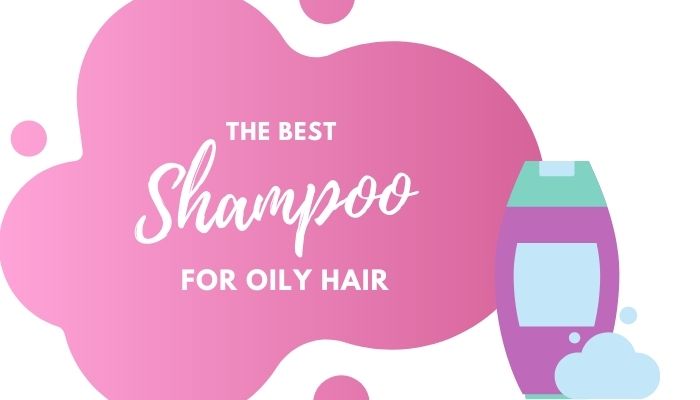Does oil and grease stop you from having great hair throughout the day? It’s a common concern, and my clients often ask for advice on how to deal with it.
We at Lucky Curl are happy to help you with your hair woes, so read along on how to manage greasy hair and turn it into gorgeous hair.
How do I stop oily, greasy hair?
You need to reduce oil production.
Your scalp produces an oily substance called sebum. This natural oil moisturizes your scalp and hair and is easy to remove with a mild cleanser. Overactive sebaceous glands have ramped-up sebum production, resulting to greasy hair and an oily scalp.
Greasy hair most likely means you have an irritated scalp. Healthy hair strands get moisturized by natural scalp oils. The scalp overproduces oil when it feels dry, like when you wash it too often.
You can choose to deal with your oily scalp and greasy hair by using products with natural ingredients, DIY treatments, and even essential oils.
if you think your hair’s oil production is no longer normal, consult with a dermatologist before doing any treatments. You might have one of several hair disorders that cause your scalp to make excess oils, and self-medicating may do more harm.
View this post on Instagram
5 Tips to Help Banish Greasy, Oily Hair
1. Avoid using shampoo every day
If you can, avoid washing your hair every day. Sounds counterintuitive? It actually works. Washing your hair too often can irritate your scalp, and
If you want to prevent greasy hair, try shampooing every other day or every two days. Use a light conditioner on the days you don’t shampoo. Avoid conditioner on the scalp area, so you won’t make a greasy scalp worse.
2. Rinse with cold water
Hot water opens up your hair cuticles, which can cause them to absorb excess oil from your scalp.
Use lukewarm or cold water instead to rinse your hair. This will help close the cuticles and make them appear less greasy. It also helps close oil-producing pores.
3. Wash with a clarifying, sulfate-free shampoo
If you have oily hair, use a clarifying shampoo that’s sulfate-free at least once a week to remove buildup and help remove too much oil. Wash your hair with shampoos with these ingredients:
- Coal tar
- Tea tree oil
- Salicylic acid
- Witch hazel
- Green tea extract
Apply conditioner to the ends of your hair, avoiding the roots and scalp. Rinse it out after a few minutes.
4. Use dry shampoo in between washes
Dry shampoo is a godsend for people with oily hair. It absorbs too much scalp oils and gives you refreshingly clean hair without water. Instant fresh hair! Daily use isn’t recommended, though, as it builds up and clogs hair follicles.
You can also try these other natural remedies:
- Apple cider vinegar rinse: To get rid of greasy hair, mix apple cider vinegar with water for a final wash. Lemon juice properly diluted with water is great for removing excess oil, too. Plus, these rinses soothe an itchy scalp and help prevent hair loss.
- Aloe vera: For a healthy scalp and hair, apply aloe vera to the hair shafts and scalp. It is good for removing excess grease. You can use it on its own or mix it with natural oils like coconut oil or olive oil. It’s great for damaged hair, color treated hair, and basically all hair types. Not just that, the extract works to treat seborrheic dermatitis, too!
5. Don’t turn up the heat
When you blow-dry freshly washed hair, use the cool setting to avoid damaging your hair and scalp. High heat can make your scalp produce more oil which leads to excess sebum and greasy hair. Air dry if your time allows for it.
More tips on managing greasy hair and oily scalp
- Be wary of using hair cosmetics like hair color, styling balm, and other styling products. If you must, use ones formulated for sensitive scalp.
- Wash your hair regularly using mild baby shampoo. You might have to wash your hair every day if it gets greasy quickly.
- Use cool or lukewarm water for hair washing as hot water can trigger the oil glands and leave hair greasy.
- Wear your hair up in a bun or ponytail to keep the grease off your forehead. This step is also a part of facial sebum control.
- Use blotting paper or cornstarch to absorb excess oil on your scalp in between washes.
- Do clean your hair brush often. A dirty hairbrush serves as a breeding ground for bacteria. You can use apple cider vinegar to soak your brushes. Trust us, it helps get rid of greasy hair!
- Do use a medicated shampoo instead of a regular one, if you have seborrheic dermatitis.
Wrap up
Keeping hair grease free is doable once you know its cause, and our tips sure can help in removing excess oil from your hair.
Try a few of the natural remedies we recommended above, with some good hair practices. No matter what hair type you have, you can bid goodbye to oily hair.
Do check out our recommendations for the best shampoo for oily hair. You might find one (or two) that your hair and scalp will love!



